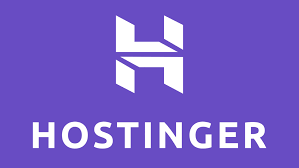
In today’s digital landscape, Search Engine Optimization (SEO) is essential for businesses and individuals alike. With the right strategies, you can significantly boost your website’s visibility, attract more visitors, and ultimately drive more conversions. This blog will provide you with practical tips to improve your SEO and help your site rank higher on search engines.
What is SEO and Why is it Important?
SEO refers to the practice of optimizing your website to improve its visibility on search engines like Google, Bing, and Yahoo. By optimizing your content and website structure, you can make it easier for search engines to understand and rank your site. When done correctly, SEO increases your chances of appearing on the first page of search results, which is crucial as 75% of users never go beyond the first page.
Key Benefits of SEO
- Increased Traffic: The higher your site ranks in search results, the more traffic you receive.
- Brand Credibility: High-ranking websites are perceived as more trustworthy and authoritative.
- Cost-Effective Marketing: Unlike paid ads, SEO focuses on organic traffic, reducing long-term marketing costs.
Essential SEO Strategies to Boost Your Rankings
To boost your SEO, you need a comprehensive strategy that covers various aspects of optimization. Below are the key techniques that will improve your site’s search rankings.
1. Optimize Your Website’s Content
Content is king in the world of SEO. Quality content that is relevant, informative, and engaging is critical to improving your search engine rankings.
a) Use Keywords Effectively
Incorporate relevant keywords throughout your content, especially in the title, meta description, headers, and body text. However, avoid keyword stuffing, which can harm your ranking. Focus on creating content that answers users’ search queries naturally.
- Primary Keyword: Your main keyword should appear in your H1 tag, meta title, and URL.
- Secondary Keywords: Related keywords should be sprinkled in H2, H3, and body content to enhance relevance.
b) Create Long-Form Content
Google favors long-form content that thoroughly addresses a topic. Aim for blog posts or articles of at least 1,000 words. Long-form content provides more opportunities to insert keywords and is more likely to rank for multiple search queries.
2. Optimize On-Page Elements
On-page SEO focuses on optimizing elements within your website, such as titles, meta descriptions, and images.
a) Craft Compelling Meta Titles and Descriptions
Your meta title and description are what users see in search results. Ensure they are descriptive, contain your target keywords, and entice users to click.
b) Use Header Tags
Proper use of header tags (H1, H2, H3) improves the readability of your content and helps search engines understand its structure. Make sure each page has a single H1 tag (usually the title) and use H2 and H3 tags for subheadings.
c) Optimize Images
Images are an important part of your website, but they can slow down your site if not properly optimized. Use compressed images and include alt text with relevant keywords to improve image SEO.
3. Improve Technical SEO
Technical SEO ensures that search engines can easily crawl and index your website. Some of the key technical aspects include:
a) Boost Website Speed
A slow website can hurt your SEO rankings. Google PageSpeed Insights can help you identify areas for improvement. Compress images, enable browser caching, and minimize HTML, CSS, and JavaScript files to speed up your site.
b) Make Your Website Mobile-Friendly
With more users accessing websites via mobile devices, having a mobile-responsive website is critical for SEO. Google prioritizes mobile-first indexing, so ensure your website adapts to different screen sizes.
c) Use HTTPS
Having a secure website is crucial for SEO. Google prioritizes websites with HTTPS over HTTP. If your website is not secure, consider obtaining an SSL certificate to protect your site and improve your rankings.
4. Build Quality Backlinks
Backlinks, or external links from other websites, are one of the most important ranking factors for SEO. High-quality backlinks from authoritative websites signal to search engines that your content is valuable and trustworthy.
a) Guest Blogging
Writing guest posts for reputable websites in your niche can help you gain quality backlinks. Focus on creating high-value content that others want to link to.
b) Reach Out to Industry Influencers
Engage with influencers in your industry and share your content with them. If they find it useful, they may link to it on their own blogs or social media profiles.
5. Regularly Update Your Content
Fresh content is a ranking factor for search engines. Regularly update your existing pages with new information, statistics, and relevant keywords. This shows search engines that your site is active and continuously providing value.
6. Leverage Internal Linking
Internal linking improves the structure of your website and helps search engines understand the importance of individual pages. Link related blog posts or pages within your website to guide users and keep them engaged.
FAQS
Q: What is SEO and why is it important?
A: SEO stands for Search Engine Optimization, and it’s the process of improving the visibility and ranking of a website in search engine results pages (SERPs) through various techniques and strategies.
Q: How do I optimize my website for search engines?
A: To optimize your website, focus on creating high-quality content, using relevant keywords, optimizing meta tags and titles, building high-quality backlinks, and ensuring a good user experience.
Q: What are keywords and how do I use them?
A: Keywords are words or phrases that people search for in search engines. Use them strategically in your content, meta tags, and titles to help search engines understand your content’s relevance.
Q: How do I build high-quality backlinks?
A: Build backlinks by creating valuable content, guest blogging, participating in online communities, and leveraging social media to attract links from authoritative sources.
Q: What is content marketing and how does it impact SEO?
A: Content marketing is creating and sharing valuable content to attract and engage with your target audience. High-quality content can improve your SEO by increasing engagement, shares, and links.
Q: How often should I update my website’s content?
A: Regularly update your content to keep search engines crawling and indexing your site, and to provide fresh information to your audience.
Q: What is mobile-friendliness and why is it important for SEO?
A: Mobile-friendliness refers to a website’s ability to adapt to mobile devices. Ensure your site is mobile-friendly, as it’s now a key ranking factor.
Q: How do I measure my SEO efforts?
A: Use tools like Google Analytics and Search Console to track your website’s traffic, engagement, and ranking to measure your SEO efforts’ effectiveness.
Q: What is local SEO and how does it differ from traditional SEO?
A: Local SEO focuses on optimizing your website for local search results, incorporating location-based keywords and strategies to attract local customers.






